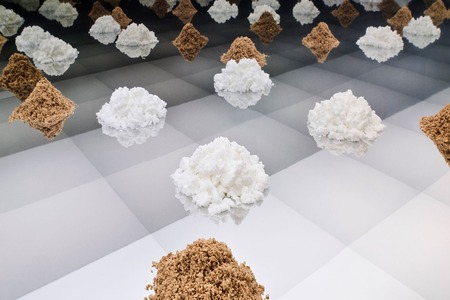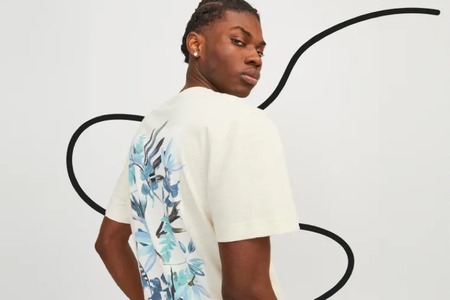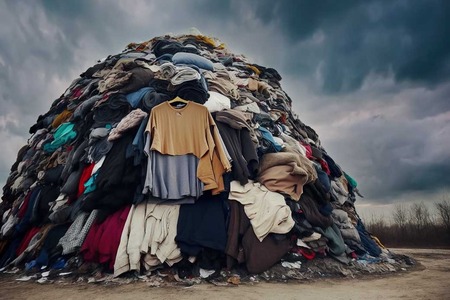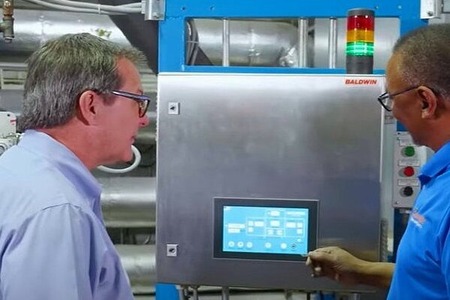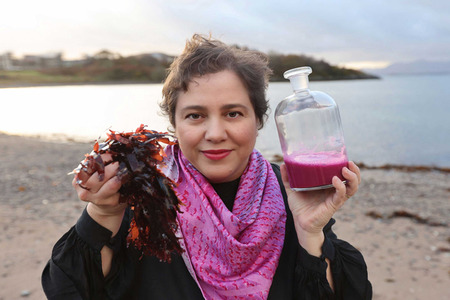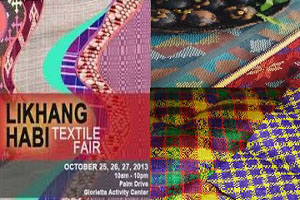
Likhang Habi Market Fair to promote hand-woven traditional textiles
YarnsandFibers News Bureau 2015-10-07 13:00:00 – ManilaHABI, the Philippine Textile Council formed in 2009 to promote and develop hand-woven traditional textiles, took the forefront in reviving Philippine indigenous fabrics through the annual Likhang Habi Market Fair. The three-day bazaar will highlight, handwoven textiles made from 100-percent Philippine-grown cotton.
Currently, the Philippine market is swamped with cheap, synthetic, imported fabrics, traditional textiles have remained unappreciated. The weaving industry has been compromising for years due to the arrival of cheap, factory-manufactured textiles. While this can be attributed to uncontrolled forces in the textile industry, HABI chair Maribel Ongpin emphasized that the greatest problem lies in people's lack of interest, knowledge and appreciation toward traditions, which had shaped Philippine culture.
Ongpin at the press launch of this year's Likhang Habi Fair said that weaving is not just a craft, but an art. It should therefore be celebrated, preserved and enhanced. She added that some people take this for granted, but it is actually an artistic work. It's not just simply manufacturing something.
HABI was founded to participate in the ASEAN discussion the traditional textiles and its future global role. HABI strives to encourage the preservation and blooming of Filipino indigenous weaving through education, communication and research utilizing public and private sources.
Weaving is a century-old tradition performed by indigenous tribes in the Philippines. The skill has been practiced intricately and has been passed on through generations. Weavers had aged along with their craft, but due to commercialization and modernization, what was once a thriving industry whittled down to detached areas, resulting in the start of the disappearance of traditional art.
Likhang Habi Market Fair fights for the survival of Filipino culture by empowering the women behind the industry. The fair continues to support the weaving industry by stoking a demand for indigenous textile through gathering weaving communities altogether and bringing their products closer to the market.
From Luzon to Mindanao, the three-day fair will feature weaving communities that have used pineapple, abaca, cotton, silk, banana, buri and pandan to produce their own particular weaves—Inabel from the Ilocos region and La Union, Cordillera weaves from Banaue and Padcal in Benguet, tnalak (an abaca weave) from Lake Sebu in Mindanao, piña from Aklan and Palawan, hablon and patadyong from Iloilo, Mangyan textiles and baskets from Mindoro, Yakan weave from Basilan, and mats and bags from Samar
With inputs from creative consultants, fashion designers and design workshops, traditional textiles are harnessed and integrated into products that suit the everyday lifestyle, bringing a touch of artisanal creativity to home essentials such as blankets, mats, cushion covers, table runners, napkins, baskets, trays and items of furniture as well as clothing and fashion accessories.
Now in its fifth year, Likhang Habi market fair will be bringing in the weavers themselves interact first hand with buyers rather than having a middleman to talk about their creations.
Along with the efforts of National Commission for Culture and the Arts, the weavers will have their own booth called Culture Aid where weavers will be present.
Kelly Marian Mortenses of YakangYaka, one of the exhibitors said that more than ten weavers who have never been to Manila will grace the fair, a first time for the event
With this year's ASEAN integration, Charise Tugada, president of Manila Collectibles and one of the collaborators in this year's fair, said that the presence of the weavers would be a great help in promoting indigenous textiles.
This year, they are expecting a lot of influx from their neighboring countries whose textile industry is way advance than theirs. This is the perfect time for them to know more about their local weaves. This year’s market fair will also feature the magnificent, one-of-a-kind creations of Lang Dulay, a Gawad Manlilikha ng Bayan awardee and designated a living natural treasure until she passed away earlier this year. Her family will showcase works of this important Filipino craftswoman which remain in their possession.
The Likhang Habi Market Fair will be held at the Glorietta 2 Activity Center from October 23 to 25. HABI is also looking forward to releasing the first "banig book" which will come out weeks after the exhibit itself. The book shows all the materials that banig is made of all over the country such as ratan, tikog, buri, pandan and other fibers.
Market Intelligence
Ask for free sample Report

experience
Customer Base
dedicated team
Countries Served Worldwide



